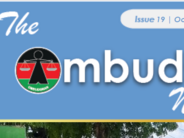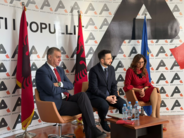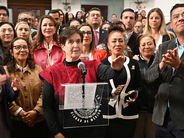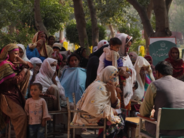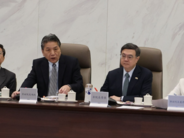IOI Ombudsman News 1/2026
Date of article: 09/01/2026
Daily News of: 09/01/2026
Country:  WORLD
WORLD
Author:
Article language: en
IOI Europe | IOI European Region Quarterly Newsletter: October - December 2025Kindly click here to read the IOI European Region’s Quarterly Newsletter for the period between October 2025 - December 2025. » more information » google translate (Francais) » google translate (Español) |
|
|
|
|
PANAMÁ | Se publicó la versión 12 de la Revista de la Defensoría del Pueblo de PanamáLa Defensoría del Pueblo de Panamá publicó su revista «Tu voz, tu derecho», que recoge los temas más importantes de noviembre de 2025. Haga clic aquí para acceder al número 12 de la revista. » more information » google translate » google translate (Francais) |
|
|
|
|
KENYA | Ombudsman Newsletter Issue 19 now availableThe Commission on Administrative Justice (Office of the Ombudsman) has recently published its 19th issue of the Ombudsman Newsletter (October - December 2025). Kindly click here to access the newsletter. » more information » google translate (Francais) » google translate (Español) |
|
|
|
|
ALBANIA | The New Ombudsman, Mr. Endrit Shabani, Officially Takes OfficeThe new Ombudsman, Mr. Endrit Shabani, officially took office on 19 December 2025, one day after his oath before the Albanian Parliament, starting the exercise of the constitutional mandate entrusted to him. » more information » google translate (Francais) » google translate (Español) |
|
|
|
|
MÉXICO | Congreso CDMX designa a María Dolores González Saravia Calderón como Presidenta de la CDHCMEl 6 de noviembre de 2025, el pleno del Congreso de la Ciudad de México votó por unanimidad la designación de Dolores González Saravia como Presidenta de la Comisión de Derechos Humanos de la Ciudad de México para el periodo 2025-2029. » more information » google translate » google translate (Francais) |
|
|
|
|
PAKISTAN | From Complaint to Change, Justice for Every WomanThe Office of the Ombudsman Punjab continues to strengthen women’s empowerment by safeguarding their lawful financial rights and addressing long-standing administrative delays. During the reporting period, the Ombudsman Punjab successfully resolved multiple pension-related complaints filed by women, ensuring timely relief and financial security. » more information » google translate (Francais) » google translate (Español) |
|
|
|
|
FRANCE | Emploi : une hausse des discriminations préoccupante sur la dernière décennieLa Défenseure des droits et l’Organisation internationale du travail (OIT) dévoilent la 18e édition de leur baromètre des discriminations dans l’emploi. Fondée sur les données 2016-2024 de l’institution (Enquête Accès aux droits), cette nouvelle édition dresse un état des lieux actualisé des perceptions et expériences de discrimination à l’embauche et tout au long de la carrière. » more information » google translate » google translate (Español) |
|
|
|
|
CONTROL YUAN, TAIWAN | Control Yuan Conducts Inspection of the Executive Yuan, Raises Key Social IssuesThe Control Yuan (CY) conducted an on-site inspection of the Executive Yuan (EY) on December 19, 2025, led by Vice President Lee Hung-chun and joined by all Members of the CY. Vice President Lee noted that the CY’s oversight authority serves as an external supervisory mechanism for government administration, assisting executive agencies in reviewing policy implementation and responding to public concerns. » more information » google translate (Francais) » google translate (Español) |
|
|
|
|
ESPAÑA | La síndica reclama ante el Parlamento una administración pública más eficazEsther Giménez-Salinas ha comparecido en la sesión de debate del informe anual 2024. Ha presentado las cifras más destacadas de la institución y ha explicado las principales ineficacias de la Administración actual. » more information » google translate » google translate (Francais) |
|
|
|
|
HONG KONG, CHINA | Direct investigation operation into Government’s work on landslide prevention and mitigation and management of government slopes completedOn 8 January 2026, the Ombudsman, Mr Jack Chan, announced the completion of a direct investigation operation into the work of the Government of the Hong Kong Special Administrative Region on landslide prevention and mitigation as well as management of government slopes, with 32 major recommendations for improvements made to the Civil Engineering and Development Department, the Lands Department, the Highways Department, the Water Supplies Department and the Architectural Services Department. » more information » google translate (Francais) » google translate (Español) |
|


